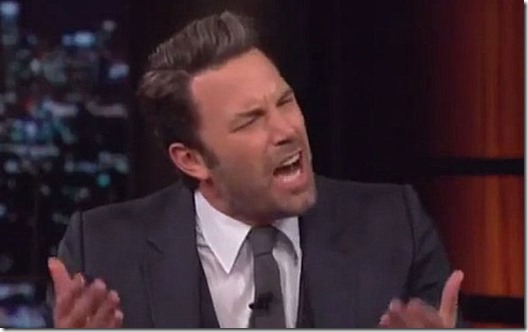Can You Say "I’m Not Here To Talk About That Topic?"
Bill Maher, the host of HBO’s Real Time with Bill Maher, made some controversial comments about Muslims during one of his recent programs, during which he had a well-publicized debate with one of his guests, actor Ben Affleck.
A few days later, Maher was scheduled to give an interview to a reporter from Salon about a different topic—his “Flip a District” campaign—but the writer understandably wanted to ask Maher about his “spat” with Affleck. Maher made clear he didn’t want to talk about that; here are three excerpts from the interview:
“Yeah, let’s leave that for a while. I’ve said enough about that.”
“You know, I don’t want to talk about this. You just said we’re not going to talk about this and now we’re talking about it.”
“I’ll tell you something interesting — and then I am going to get off the subject because we’re here to talk about “Flip a District,” was my understanding.”
Maher’s responses made me think about a question we hear a lot during our media training sessions: What should I do if I’m asked a question about a topic I wasn’t originally booked to speak about? Do I have to answer it, or can I insist on speaking only about the topic we agreed to discuss in advance?
In that situation, you have a few options:
1. Answer The Question
This is often the best option, particularly if the question is one that the audience would expect you to be able to answer. Deflecting a straightforward question that deserves a straightforward response often plays like this infamous 2008 interview, in which Sarah Palin refused to name the newspapers she reads.
2. Give a Short Response, Then Transition Away From It
Maher used this approach, reminding the reporter that he had agreed to speak about a specific topic and insisting that they keep to the ground rules. He provided a short answer to the questions about his controversial comments, then moved away from them.
This approach can work for more experienced spokespersons—Maher used it well—but it requires a deft touch to avoid being portrayed as evasive. But there’s one problem with this approach: By giving even a short response about his controversial comments, Maher allowed Salon to run the exact headline he didn’t want: “EXCLUSIVE: Bill Maher on Islam spat with Ben Affleck: ‘We’re liberals! We’re not crazy tea-baggers.'”
3. Confront The Reporter
In a 2012 Republican primary debate, Newt Gingrich was asked about accusations that he had asked his second wife for an open marriage. He deemed the question out of bounds—we’re here to talk about serious issues, and you’re asking me about a personal relationship—and went on the offensive.
Gingrich used this approach brilliantly, but he also deployed it in front of a supportive audience that shared his dislike of the media. Generally speaking, this is a high-wire act that few people pull off well.
4. Refuse to Answer The Question
Here’s where things get really tricky: Let’s say you agreed with a reporter in advance that the interview would be limited to a specific topic. When the interview begins, the journalist breaks his or her promise. Cameras are roiling. Do you refuse to answer it, perhaps reminding the reporter of your agreement, even if doing so risks making you look evasive to the audience?
The answer is “it depends”—on the context, the topic, the format, and the spokesperson. This option is risky, and in my experience, only a small percentage of spokespersons have the media savvy and personal qualities to pull this off well. But assuming you do refuse to accept the question, keep these two things in mind:
First, make sure your tone doesn’t convey even a whiff of defensiveness.
Second, you can refuse to answer the question with a response like one of these:
“I’m not here to discuss that topic today. I want the focus to be squarely on our new product, and I’m aware that if I comment on anything but that, the headlines won’t be about the product. So let’s get back to that…”
“You know, Janet, I’m surprised you would ask me that. Before we began this interview, we agreed that you would ask me only about this project, and now you’ve broken that promise. I’m happy to do this interview with you if we focus it on this project, which is so important to so many people. But if you insist on breaking your commitment, you’ll leave me little choice but to end this interview.”
The second option is similar to “confront the reporter” approach, but with one key difference—whereas Gingrich still proceeded to answer the question, the spokesperson in this example didn’t.
Final Thought
This post focused on what you can do during the interview itself. But you can also help reduce the need for saying “I’m not here to talk about that topic” by negotiating the ground rules before the interview, and you can register a complaint after the interview (and disclose that breach to your audiences through your blog and social media feeds) if the reporter breaks them.
Like the blog? Read the book! The Media Training Bible: 101 Things You Absolutely, Positively Need to Know Before Your Next Interview is available in paperback, for Kindle, and iPad.




Seems the more you refuse to answer the question, the more you’ll get asked about it. In recent weeks Alison Lundergan Grimes ( vs. Senator Mcconnell) has been asked if she voted for Pres Obama. The more she refused to answer the question, the more she got asked about it ultimately destroying her lead in the race.